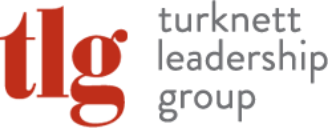
By Jonathan Palombo
Marketing Manager, TLGIn this edition of our Coaching Spotlight, we are highlighting Dr. Patricia Thompson, who has been a Senior Consultant with TLG for six years. Patricia is a Ph.D. psychologist who blends psychology with business practices to help her clients reach their fullest potential. We interviewed Patricia to learn a little more about her background, what she enjoys most about her work, and what advice she might have for aspiring and current leaders.
Q: Tell us a about your background in psychology and consulting – how did psychology and business consulting meet for you?
My Ph.D. is in clinical psychology, and I assumed that I was going to be going the clinical route all throughout graduate school and even in my post-graduate career. While I was doing my post-doc at Grady Hospital in Atlanta, we had a training seminar as our training director’s goal was for all of us to be employed afterwards! So they brought in people to tell us the different sorts of careers we could pursue with our degree. One of these groups that came in happened to be a consulting firm, and they were looking for people who were good psychologists. You didn’t necessarily have to have the business background – they were willing to train and educate us for that. It sounded very interesting to me because I had worked with a lot of different populations to that point, so I took the leap and decided I would give it a try. Since grad school, I’ve been coaching and consulting and there are a lot of carryovers from the psychology aspect to coaching because it all has to do with human behavior. In grad school I also did a lot of assessment work which lends itself nicely to the different assessments that I do with TLG.
Q: How do you blend psychology and business practices and what benefits does this have for your clients?
When you work in a business setting and a significant number of people, the better you understand people the better off you are going to be. Where I am able to really help leaders is with that aspect of understanding people and human behavior/dynamics. I not only help them understand how to engage and motivate people, but also how to adjust their own behaviors. Many people in the business world will look at things through a metric-driven and hard data lens. That is clearly important, but often it’s the soft skills that can really differentiate a good leader from a great leader. As a business psychologist I can help my clients understand themselves and those around them while helping them use those understandings to their benefit.
Q: What do you enjoy most about coaching and helping others reach their fullest potential?
Something I really enjoy is the trusted relationships that I can build with my clients. They gain an outlet to be able to really open up to an objective party whose goal is to simply help them reach their goals and to grow. I also really like seeing people get wins as they accomplish their goals, and the confidence that they can gain as a result. Sometimes it’s someone moving into a new position or just being more effective and more confident in their current role. Ultimately, I love the process of helping people reach their fullest potential and seeing the positive impact that it can have not only at work but in their personal lives. When you are happier at work, you tend to be happier overall.
Q: You’ve been with TLG for some time now, tell us about this relationship and how it has benefited you as a coach.
Anytime you get to collaborate with others and share different perspectives is a win for me. I think Bob, Lyn, Tino, and all the other individuals who work at TLG are just great to work with in general. When you work with a firm that has a great culture, it’s more satisfying and rewarding to work with people like that. I also really like TLG’s Leadership Character Model. It’s a wonderful framework for clients and a methodology that I think resonates with a lot of people, so I like the exposure to that. Overall, I really like the people I work with and that’s the biggest win for me.
Q: What would you say to someone who is aspiring to leadership and where they should start?
I think a good place to start would be self-reflection and deepening your self-awareness. This helps you know the areas that you are strong in so you can learn a little more, as well as the areas in which you can grow. I think for any leader, understanding and seeing yourself as an instrument of change and understanding the levers to facilitate that change is a critical first step. I’ve found that the best leaders are more self-aware, and as a result they have fewer blind spots that create issues or have unintended consequences. They are also better able to lean into their strengths and lead in a way that is authentic to them, but also effective. Just start with trying to know yourself as Socrates would say.
Q: What to you is the most important quality of a leader and why?
In addition to self-awareness, which is fundamental, I’d say emotional intelligence. Being able to understand yourself and your interactions, being able to moderate them, and having a good understanding of other people. You need to be able to adjust your leadership style accordingly to be able to not only coach and motivate others but also influence at a larger scale. The further you move up in an organization, the less important technical skills become, and the more important emotional intelligence and those soft skills become.

